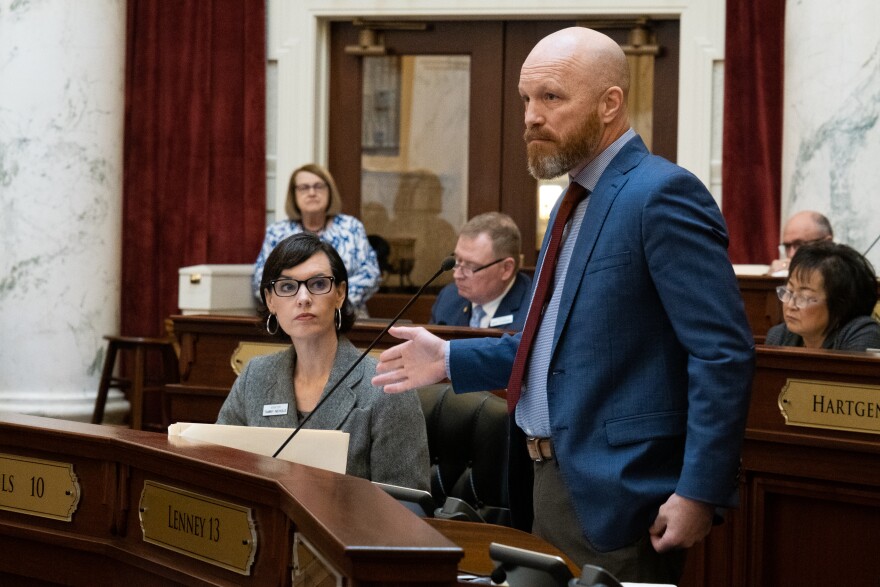An effort to reroute public school money to pay for things like private school tuition failed Monday in the Idaho Senate.
The bill would’ve created what the sponsors call education savings accounts. Families who applied for the program could’ve used roughly $6,000 per year that would’ve gone to their child’s public school to pay for private school, homeschooling materials or tutoring instead.
Sen. Brian Lenney (R-Nampa), one of the main sponsors of the bill, said it’s not fair that people who don’t send their kids to public schools essentially pay for two systems through their tax dollars.
“This ends the practice of double charging non-public school families for their child’s education,” Lenney said.
Flagging public school test scores highlight the need for alternatives for Sen. Chris Trakel (R-Caldwell).
“We continue to throw money at it every year and we continue to get a bad product,” said Trakel. “No business would exist like this on the outside.”
Idaho’s public education budget has been among the worst in the nation for years on a per-pupil basis – something pointed out by opponents of the bill. Instead of “siphoning” off money from public schools, more cash could help boost student achievement, they said.
Speaking of test scores, Sen. Dave Lent (R-Idaho Falls) said the fact that no one would analyze whether kids in the program would get a good education bothers him. Private schools and homeschoolers don’t have to report curriculum, test scores or other achievement metrics to the state.
“It’s actually against my conservative Republican perspective to hand this money out with no accountability that these precious tax dollars are being used wisely,” Lent said.
Several Republicans who voted against the legislation said they would’ve supported it had the proposal been more narrowly tailored.
Senate Pro Tem Chuck Winder (R-Boise) said it was just too broad and too vague for his liking.
“It, again, is just another effort to transfer money from the public treasury to a select group of people that meet the requirements of this bill,” Winder said.
Others argued the bill should’ve restricted wealthy families from participating.
The bill ultimately failed 12-23, though a similar bill could still be considered before the legislature is expected to gavel out next month.
Follow James Dawson on Twitter @RadioDawson for more local news.
Copyright 2023 Boise State Public Radio



